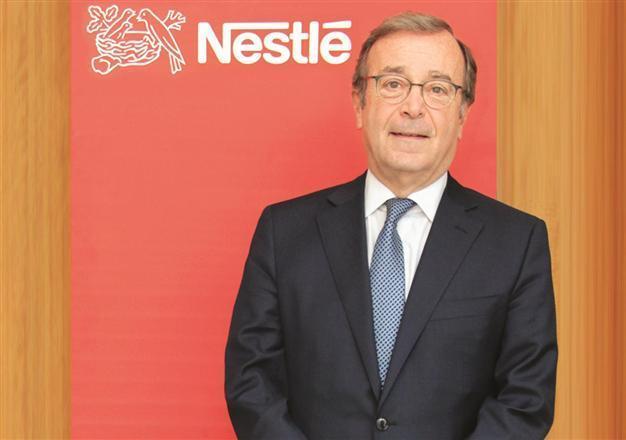Food giant Nestle challenging regional crises
Ali Kayalar ISTANBUL

The Swiss company still delivers goods to war-hit Syria, as it also remains assertive about its stronghold Russian market despite a weak ruble.
Reorganized geographically at the beginning of the year, Nestle is challenging a number of regional problems, as the confectionery giant bids to remain strong in the Russian market despite the depreciation of the ruble, while it also continues its business in war-torn Syria, according to Nestle executive Luis Cantarell.“Of course, the war in Syria has added difficulties and affected our business, but our products are still there,” Cantarell told the Daily News in a March 3 interview in Istanbul, as he also elaborated on the new organizational structure of the company, including himself as Zone Director for Europe, Middle East and North Africa (EMENA), launched Jan. 1.
The company used to have a factory in Syria but it was bombed, he said. Now the distributors are handling the delivery process.
“But nevertheless, we already have a presence there, even it is limited,” Cantarell said.
“Wherever a consumer will like to buy our products it is our responsibility to deliver,” he said, noting the situation in Libya is also difficult when compared to other North African countries.
Russia also stands as a volatile market, according to Cantarell, but he is still confident.
“Russia is an important market for us. We grew there last year. We had good results. Now the market is more volatile,” he said, citing the ruble’s devaluation and a fall in consumer confidence.
“Our culinary, confectionary and coffee brands are very well-rooted in the country. We expect our brands to keep the share and continue growing in 2015 in a more volatile market,” he said.
When asked about the pros and cons of the hike in the value of the Swiss currency, Cantarell said, “It is always cons.”
“It is because our results are in the Swiss franc. Our balance sheet is very strong. But on the other hand it makes our life tougher. … We export a lot from Switzerland, which requires us to take some measures to improve our profitability,” he said.
“This is not the first time that the Swiss franc was revaluated,” he said.
Nestle did very well last year, he said, highlighting 91.6 billion Swiss francs in annual sales and 4.5 percent organic growth.
The trading operating profit margin was up 10 basis points to 15.3 percent, as it was up 30 basis points in constant currencies, he said.
The company’s EMENA arm held its first conference in Istanbul with around 100 managers.
The company sees opportunities in adding business from Turkey, Israel and the Middle East to the “old European business.”
“There is a lot of commonality in terms of culture and cuisine; kitchens of the Mediterranean are very similar,” Cantarell said, adding this would also spur a change to focus more on Asian businesses, namely in China and India.
Nestle Turkey, for its side, generated 2 billion Turkish Liras, or 800 million Swiss francs, of turnover in 2014. It has grown by 15 percent on average over the last seven years and has some 3,700 direct employees. “Together with our business partners we employ around 5,000 people,” the company says. The company has been present in Turkey for more than 100 years.
The executive remained silent when asked about any acquisition plans in the pipeline.
“We are always active and looking into any possibility that will feed our strategic direction to be recognized a nutrition, health and wellness company,” he said.
















